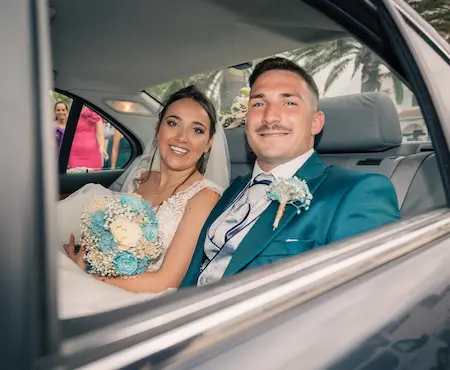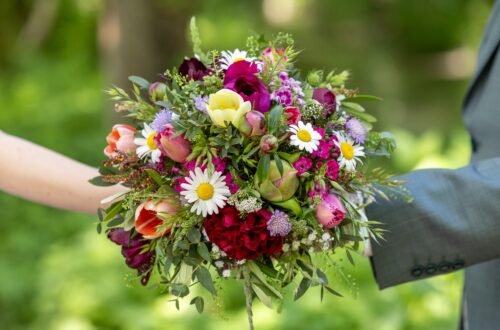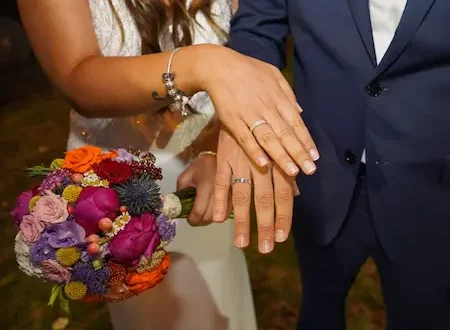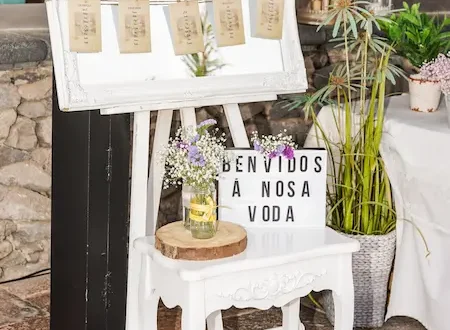
Why a second ceremony is often more emotional than the first wedding
The first wedding may have been grand and exciting—but also shaped by expectations, formalities, and time pressure. A second ceremony, e.g. for a silver or golden anniversary, is often much more personal. Why? Because it’s done again out of free will, in deep gratitude for what you’ve experienced together—and with a story in tow that no civil-marriage vow ever fully captured.

Reliving the Most Beautiful Moment
No Social Pressure—Only What Matters to You
At an anniversary ceremony there are no conventions. No dress has to be white, no speeches must be given—anything goes, nothing is required. That creates space for genuine emotion. The celebration isn’t driven by societal expectations but solely by what defines you as a couple. Perhaps you want to renew your vows on a beach in the open air or create a symbolic circle of love with your children and grandchildren—it’s allowed if it feels right.
Many couples report feeling “lost” at their first wedding amid checklists, family opinions, and photo schedules. A second ceremony, on the other hand, can be a kind of “coming home”—to yourself and to the essence of your relationship.
Greater Depth Through a Shared Lived History
While the first wedding often centers on “the future,” a second ceremony carries the strength of the lived past within it. You’ve experienced highs and lows together, you’ve grown, perhaps even rediscovered each other in difficult times. That depth brings a special intensity to the ceremony.
You can incorporate shared memories: letters or small objects from the early days, favorite songs that carried you through phases, or symbolic gestures for overcoming crises. These elements make the vow renewal not only emotional but also uniquely personal.
A Conscious Act of Love
Renewing your vows means: I choose you again. And I do so with the knowledge of how life plays out. It’s a conscious act of appreciation: “I know more about you now, about us—and I choose you again, especially because of that.”
Unlike the first wedding, where much remains theoretical, this decision is rooted in lived reality. It may not be glamorous, but it is real—and all the more powerful for that. Some couples use this moment to make new promises to each other that arise from today—not from fantasies of the future, but from mature love.
Space for Self‑Expression—as a Couple and Individuals
A second ceremony can celebrate not only the relationship but also the growth of each person. You’ve developed not only as a couple, but also as individuals. This awareness can be beautifully integrated into the ceremony—for example, through mutual words about what you appreciate (even more) in each other today.
Time for Silence and Symbolism
A second ceremony can be slow. Without program pressure. Perhaps you want to light a candle for all the moments that shaped you. Or walk a shared path—symbolic of your journey. Rituals that were missing or only symbolically “checked off” at the first wedding can find real space here.
Second ceremonies are often more moving because they don’t mark the beginning but the depth of the journey shared. They show: this love endures—and deserves its own celebratory moment. Free from societal expectations, you can celebrate what truly connects you—with words, gestures, and the silence between lines.
Frequently Asked Questions (FAQ) on the Topic:
Is a second ceremony like a wedding without a marriage certificate?
Yes—but with even more meaning, as it reflects lived love and a renewed decision for each other.
Do you need special clothes or a specific format?
No. The ceremony is individually designed—elegant, relaxed, or spiritual, according to your wishes.
When is the best time for a second ceremony?
Whenever it feels right—whether for an anniversary, after overcoming crises, or simply out of love.




